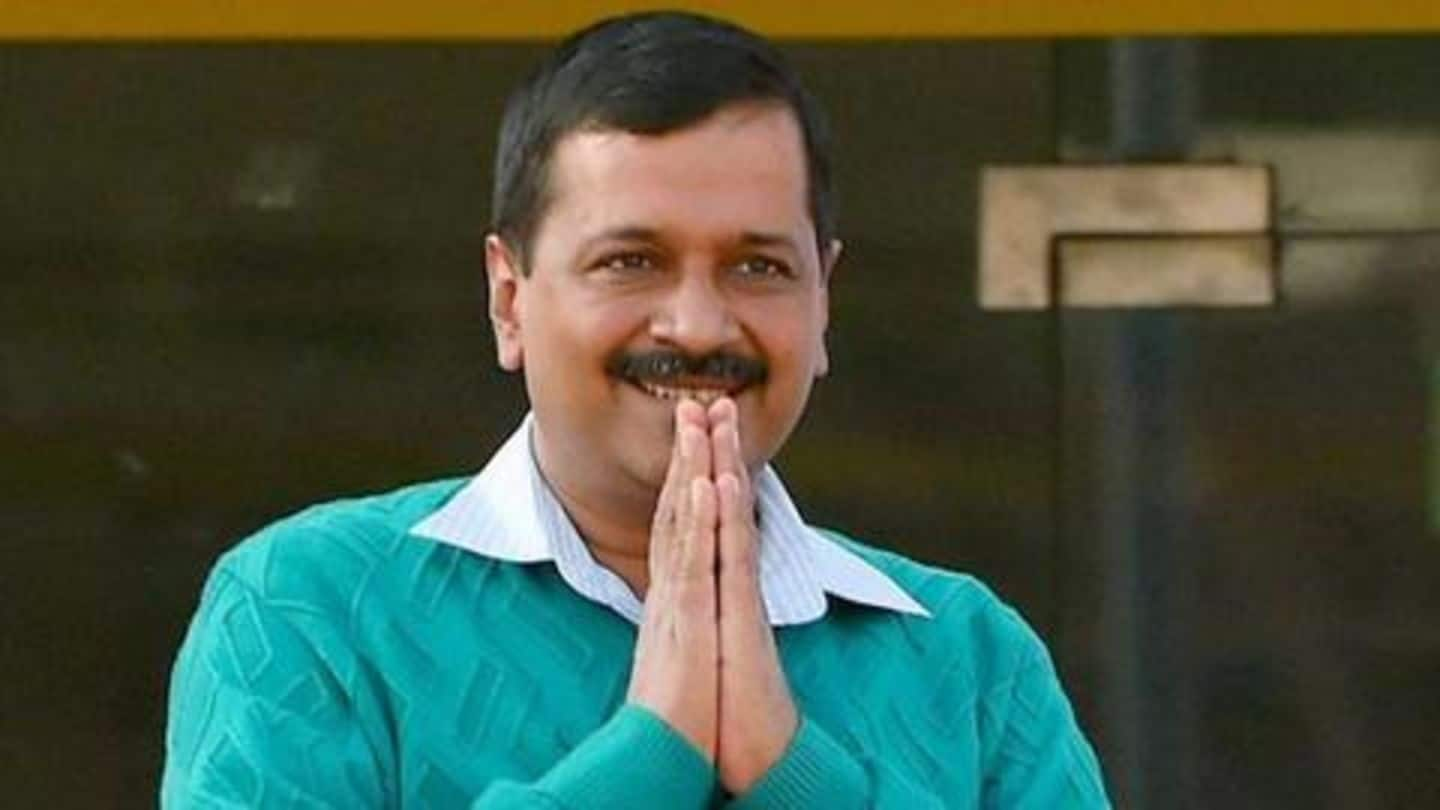
Aam Aadmi Party: The good, the bad, the ugly
What's the story
For weeks now, political circles have been busy with a question: Will they, won't they? The "they" signifying a probable alliance between Aam Aadmi Party (AAP) and Congress for the ensuing summer elections. More so because AAP has been Congress' staunch critic. But how did the party, founded in 2012, emerge as an important player in Indian politics? Let's decode.
Beginning
It all started when Anna demanded a Lokpal
AAP was born out of India Against Corruption (IAC) movement, spearheaded by Gandhian Anna Hazare. In 2011 and 2012, India was jolted by a string of corruption cases and Anna demanded setting up of Lokpal to investigate everyone from politicians to government employees. Arvind Kejriwal, an IITian and activist, also joined the movement and echoed Anna's words. He was considered as Anna's confidante.
Split
Anna wanted to stay away from politics, Kejriwal didn't
Notably, Anna wanted to keep the movement apolitical, but Kejriwal felt otherwise. He advocated forming a new party to "clean" the system. In September 2012, Anna announced the split and asked Kejriwal to neither use his nor his campaign's name for his aspirations. Days later, Kejriwal floated AAP with a promise to fight corruption and honor the tenet of Swaraj.
Founding members
Yogendra Yadav, Manish Sisodia, and Prashant Bhushan joined Kejriwal
When Kejriwal set out on the new journey, he wasn't alone. People like Manish Sisodia, Yogendra Yadav, Prashant Bhushan, Shazia Ilmi, joined the party. Soon, other famous names like Ashutosh and Dr. Kumar Vishwas lent their support. Kejriwal promised to fight "bribe-taking" culture and citizens who were sick of being looted, put their faith in him. Soon, AAP's following grew exponentially.
Ideology
AAP promised what the traditional parties didn't
AAP was given the broom as a symbol. The significance wasn't lost on anyone, after all, the party wanted to "clean" politics. Apart from Swaraj, AAP also took on dynasty politics and said no two members of the same family will get a ticket. AAP had said "true democracy" would be the party's main ideology and things like caste and creed would be irrelevant.
Leader
Kejriwal fought against Modi in Varanasi in 2014 elections
What people liked about Kejriwal was his fearlessness. "David" Kejriwal took on "Goliath" Narendra Modi in 2014 elections in Varanasi to prove he is cut out for Indian politics. He went as far as promising to jail Sheila Dikshit on corruption charges if AAP won elections. He took up issues which no one paid attention to- cheap drinking water, electricity, and better schools.
Elections
AAP "swept" Delhi in 2015
AAP contested 2013 Assembly polls in Delhi and surprisingly won 28 out of 70 seats. But in only 49 days, the government resigned after it couldn't pass its version of Lokpal bill. In 2015 polls, AAP stunned everyone by winning 67 seats and Kejriwal became the Chief Minister. The message was clear: Common man had arrived to change traditional politics.
Fallout
Soon, Kejriwal started losing aides
But the honeymoon period didn't last long. One after other prominent members like Shazia Ilmi, Yogendra Yadav, and Prashant Bhushan left the party. Almost everyone had the same complaint that Kejriwal has surrounded himself with yes men of power corridor and rarely listened to anyone. Ashutosh and Dr. Kumar Vishwas quit after reportedly being denied a Rajya Sabha ticket.
Controversies
AAP has seen its share of controversies
In the last few years, AAP has been embroiled in a series of controversies. From refusing to disclose where funds came from to allegedly assaulting Delhi Chief Secretary Anshu Prakash last year, AAP stayed in news for all the wrong reasons. Kejriwal's incessant blame game didn't help the cause either. For all the things he couldn't achieve, he either blamed BJP or Congress.
Dharna
Dharna politics became Kejriwal's trademark
Even after he became CM, the activist in Kejriwal didn't die as he sat on dharnas frequently. Only last year, Kejriwal and his aides Manish Sisodia and Gopal Rai sat at the office of Anil Baijal, Delhi's L-G, for days. They called Baijal a stooge of Centre who, they alleged, stopped Delhi's development. Kejriwal also claimed officers and Delhi police didn't listen to them.
Statehood
Kejriwal and Delhi's statehood: A point of contention
One of the long-standing demands of Kejriwal has been full statehood for Delhi. The party believes the national capital should be free from the Centre's interference, but the Supreme Court didn't agree. In its February 2019 verdict, SC said Delhi can't be granted full statehood, miffing Kejriwal. Notably, he has promised full statehood if his party wins all seven seats this time.
Prominence
Kejriwal became an important voice in India's Opposition
Since PM Modi came to power, Kejriwal has turned out to be the perfect Opposition leader. From accusing BJP of damaging the country's secular fabric to reminding PM Modi of his promises, Kejriwal rarely minced his words. Much to the dismay of his followers, he grew close to other leaders like Mamata Banerjee, Akhilesh Yadav, Mayawati, and even Sharad Pawar, whom he berated once.
Alliance
Kejriwal's advocacy for alliance showed AAP isn't different after all
But the narrative sort of slipped from Kejriwal's hands when he became desperate to forge an alliance with Congress. While Congress remained (and still is) indecisive, Kejriwal openly listed out benefits of this alliance. His critics and even fans thought this was absurd considering Kejriwal always slammed Congress. Kejriwal testified Indian politics is about a marriage of convenience even if you promise to be "different".